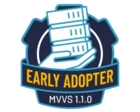Hi all,
Just wondered if anyone has tried this or may know the answer. I have gzipped files in unix and I am trying to send these via a http POST, but having issues. I've tested via postman, so know it's something I am doing wrong.
I have added 'Content-Type application/json", and "Content-Encoding gzip" to the header, and read in the file to use as the payload, but get the following when checking the response header:
------------------------------
Simon Woolfall
Senior Software Engineer
Rocket Forum Shared Account
BELFAST GB
------------------------------
Sending gzipped files via http POST
Sign up
Already have an account? Login
Welcome to the Rocket Forum!
Please log in or register:
Employee Login | Registration Member Login | RegistrationEnter your E-mail address. We'll send you an e-mail with instructions to reset your password.







